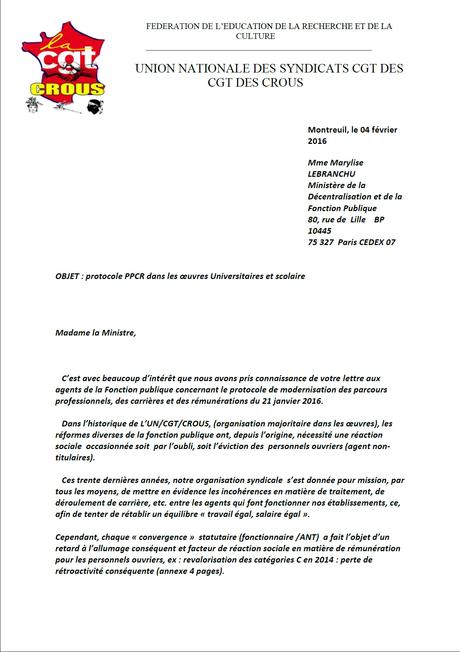Can Technology Solve Infidelity? The Rise Of Smart Rings For Fidelity

Table of Contents
How Smart Rings Work: Technology Tackling Infidelity
Smart rings designed to address infidelity concerns leverage a combination of technologies to monitor various aspects of the wearer's behavior and location. This technological approach aims to provide quantifiable data that can either alleviate anxieties or raise red flags. The core technologies typically include:
-
GPS Tracking: This functionality constantly monitors the ring wearer's location, allowing partners to verify claimed whereabouts. Discrepancies between reported location and GPS data could trigger alerts or raise questions.
-
Heart Rate Monitoring: By tracking heart rate, some smart rings aim to detect physiological changes associated with heightened arousal. While potentially useful, this feature raises significant ethical concerns, as it presupposes a direct correlation between elevated heart rate and infidelity, which is far from conclusive.
-
Proximity Sensors: These sensors detect when the ring is removed or comes into close contact with other individuals. While intended to alert the partner to potential interactions, this raises immediate privacy issues and can lead to misunderstandings.
-
Activity Tracking: Similar to fitness trackers, smart rings for fidelity can monitor sleep patterns, activity levels, and daily routines. Significant deviations from established patterns could be interpreted as suspicious behavior, although such deviations often have innocent explanations.
While no specific brand currently markets a ring explicitly for fidelity monitoring, the technological capabilities exist, and the theoretical application is readily apparent. The future may see more devices marketed directly toward this purpose.
The Benefits and Drawbacks of Smart Rings for Fidelity
The appeal of smart rings for fidelity lies in their potential to offer a sense of security and transparency within a relationship. However, this technology is not without its significant drawbacks.
Benefits:
- Increased Transparency and Trust: The promise of verifiable data can potentially reduce suspicion and promote open communication.
- Reduced Anxiety: Knowing the location and activity of a partner might alleviate some anxiety related to infidelity.
- Early Intervention: Unusual patterns detected by the ring could lead to early discussions about potential relationship issues.
- Objective Data: The data collected can serve as a starting point for conversations about relationship concerns, providing an objective foundation for dialogue.
Drawbacks:
- Privacy Concerns: Constant monitoring can be invasive and damage the relationship's emotional intimacy.
- Misuse and Manipulation: The data can be used to control or gaslight a partner, exacerbating existing issues.
- False Positives and Inaccuracies: Technological glitches and misinterpretations can lead to unnecessary conflict and erode trust.
- Erosion of Trust: Relying on technology rather than open communication undermines the foundation of a healthy relationship.
- Ethical Considerations: Surveillance without full consent is a significant ethical breach, even if intended to address infidelity concerns.
Addressing Privacy and Ethical Concerns
The ethical implications of using smart rings for fidelity are paramount. Consent must be freely given and fully informed. Couples need to establish clear boundaries regarding data usage and access. Any use without explicit consent constitutes a serious breach of privacy and could have significant legal consequences. It's vital to remember that trust is not built on surveillance but through open communication and mutual respect. Instead of focusing on technological solutions, prioritizing communication and understanding is far more effective.
Alternatives to Smart Rings for Building Relationship Trust
Technology cannot replace the essential elements of a healthy relationship. Focus should be placed on fostering open and honest communication. Instead of relying on smart rings for fidelity, consider these alternatives:
- Open Communication: Honest and regular discussions about concerns and expectations are vital for a strong relationship.
- Couples Therapy: A therapist can provide a safe space for addressing relationship issues and improving communication.
- Quality Time Together: Prioritizing quality time, expressing appreciation, and engaging in shared activities strengthen the emotional bond.
- Building Trust Through Actions: Consistency, reliability, and demonstrable commitment are far more effective than technological monitoring.
Conclusion: Smart Rings and Fidelity: A Technological Approach to a Human Problem
Smart rings for fidelity offer a potentially appealing, yet ultimately flawed, approach to relationship anxieties. While the technology might provide a veneer of security and transparency, it cannot replace the fundamental need for trust, open communication, and mutual respect. The drawbacks, particularly concerning privacy and ethical considerations, significantly outweigh any perceived benefits. Instead of seeking technological solutions to infidelity, focus on building strong, healthy relationships based on genuine connection and understanding. Investing time in healthy relationship dynamics and seeking professional guidance, when needed, is far more effective than relying on "smart rings for fidelity" or similar devices. Further research into healthy relationship dynamics and effective communication strategies is strongly encouraged.

Featured Posts
-
 Familys Poignant Tribute To Devoted Manchester United Supporter Poppy
May 03, 2025
Familys Poignant Tribute To Devoted Manchester United Supporter Poppy
May 03, 2025 -
 Rupert Lowe On X Effectiveness Of Messaging For Uk Reform Examined
May 03, 2025
Rupert Lowe On X Effectiveness Of Messaging For Uk Reform Examined
May 03, 2025 -
 La Matinale Avec Mathieu Spinosi Un Violon A L Ecran
May 03, 2025
La Matinale Avec Mathieu Spinosi Un Violon A L Ecran
May 03, 2025 -
 Reform Uk Five Reasons Nigel Farages Party Faces Collapse
May 03, 2025
Reform Uk Five Reasons Nigel Farages Party Faces Collapse
May 03, 2025 -
 Projet D Aide Financiere A Maurice Signature Et Protocole D Accord
May 03, 2025
Projet D Aide Financiere A Maurice Signature Et Protocole D Accord
May 03, 2025
Latest Posts
-
 Is Nigel Farages Reform Uk Party Facing Extinction Five Reasons Why
May 03, 2025
Is Nigel Farages Reform Uk Party Facing Extinction Five Reasons Why
May 03, 2025 -
 La Serie Joseph Tf 1 Immersion Dans La Creme De La Crim
May 03, 2025
La Serie Joseph Tf 1 Immersion Dans La Creme De La Crim
May 03, 2025 -
 Danger For Reform Uk Five Reasons Nigel Farages Party Is At Risk
May 03, 2025
Danger For Reform Uk Five Reasons Nigel Farages Party Is At Risk
May 03, 2025 -
 Securing A Place In The Sun Essential Tips For International Property Buyers
May 03, 2025
Securing A Place In The Sun Essential Tips For International Property Buyers
May 03, 2025 -
 Reform Uk On The Brink Five Critical Factors Threatening Its Success
May 03, 2025
Reform Uk On The Brink Five Critical Factors Threatening Its Success
May 03, 2025
